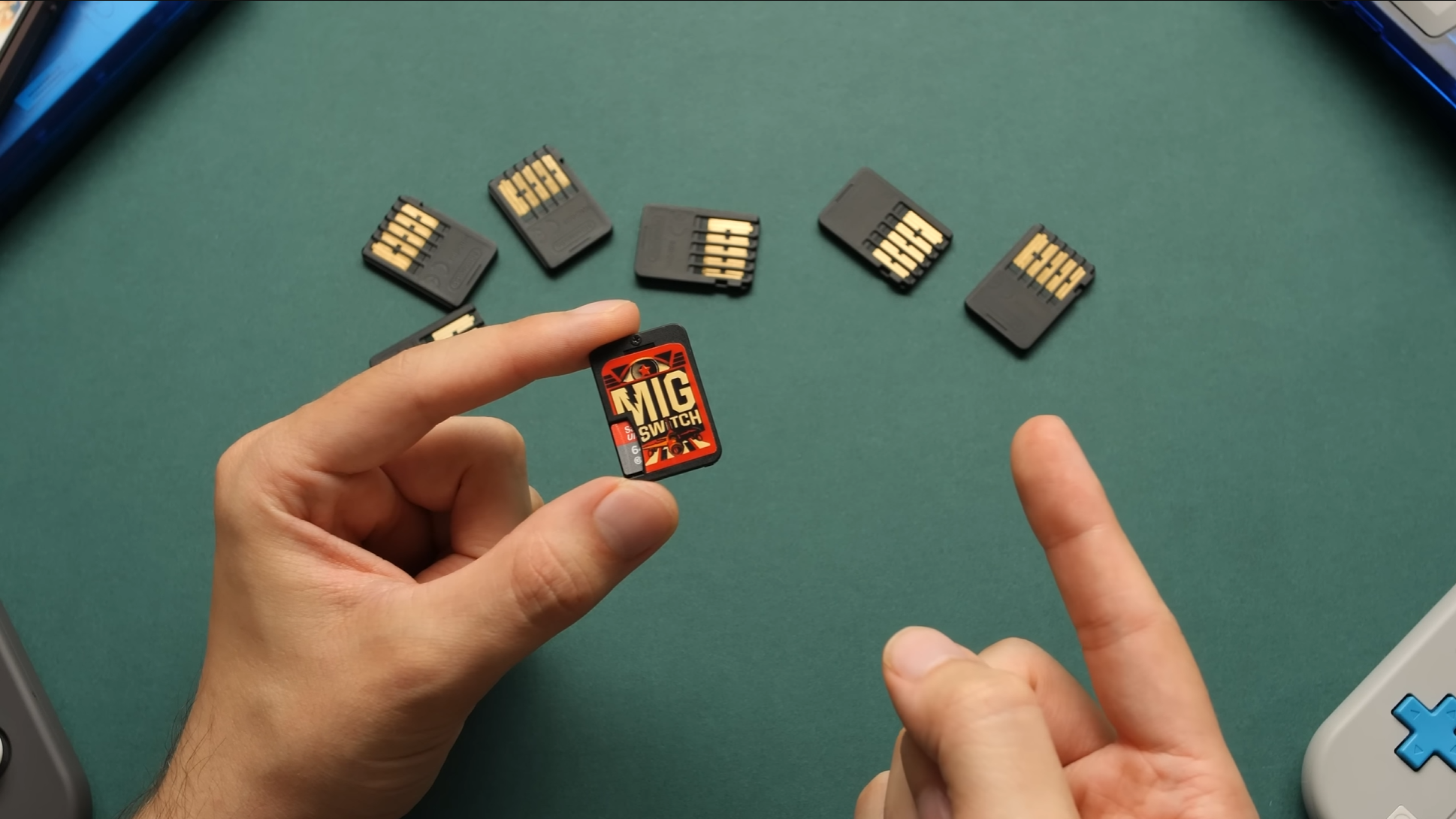Well, it only took nearly seven full years after the Nintendo Switch’s original launch in March 2017, but we now have what appears to be a working Switch “flash cart,” courtesy of the MIG-Switch device. A “flash cart,” for those unfamiliar, refers to a game cartridge for a particular console that actually uses an SD card (or some other kind of flash memory) to read game backups. These devices are particularly popular among pirates but have mostly been locked to older handheld consoles, that is, until the release of the MIG-Switch.
YouTuber Taki Udon is among the first to get their hands on a MIG-Switch, and published a video reviewing and demonstrating the new device. The device does appear to work well, but we should hold out final judgment about the efficacy of the device until we see others also test it.

As Taki Udon demonstrates in the video above, the MIG-Switch flash cart works as advertised. However, it doesn’t have a software front-end for switching games like old flash carts used to have— instead, you have to physically switch between games stored on the flash cart by ejecting and re-inserting them within the Switch game slot, a process Taki Udon demonstrates in the video.
This is a device that’s trying to convince the Nintendo Switch it’s a real game cartridge, and part of the way it achieves that is by keeping its core functionality outside of software that could easily be patched or fixed. According to MIG-Switch themselves, this flash cart should be “unpatchable” by Nintendo and should work on every currently existing Switch console.

So, what’s the catch, then? I mean, of course, besides the risk of Nintendo sending its lawyers to your doorstep for stealing a video game. Well, Nintendo’s copy protection may be broken enough for flash carts to work, but it is not broken enough for duplicate versions of games to be able to exist online simultaneously and not get banned from Nintendo servers.
You see, every Switch cartridge ever made has a unique identifier. Whenever you create a rip for personal usage, it will have the same unique identifier as your retail cartridge. According to MIG-Switch, though Taki Udon and plenty of others don’t wanna test this, that should make these backups fully usable online. But online play is where we start seeing even bigger issues, particularly for used gamers.
Once this flash cart sees a public release (sometime in the next few months, according to Taki), there will be people who use it as an opportunity to buy games, create backups, and then resell the games as used. If the backup and the original game with the same ID end up online simultaneously on separate consoles, that’s blatant foul play to Nintendo and will earn both players a game or an account ban.
Get Tom’s Hardware’s best news and in-depth reviews, straight to your inbox.
While a ban certainly might seem warranted for the flash cart user in that scenario, it’s completely unfair for the gamer whose only crime was paying for a used game.
Officially, this device is targeted at third-party developers and legitimate users, not your average software pirate. However, there’s nothing stopping your average software pirate from using this, and it will undoubtedly be popular for those same people. The potential for purchase, backup, and resell abuse with bannable, cloned Switch cartridges has never been higher.
Christopher Harper has been a successful freelance tech writer specializing in PC hardware and gaming since 2015, and ghostwrote for various B2B clients in High School before that. Outside of work, Christopher is best known to friends and rivals as an active competitive player in various eSports (particularly fighting games and arena shooters) and a purveyor of music ranging from Jimi Hendrix to Killer Mike to the Sonic Adventure 2 soundtrack.